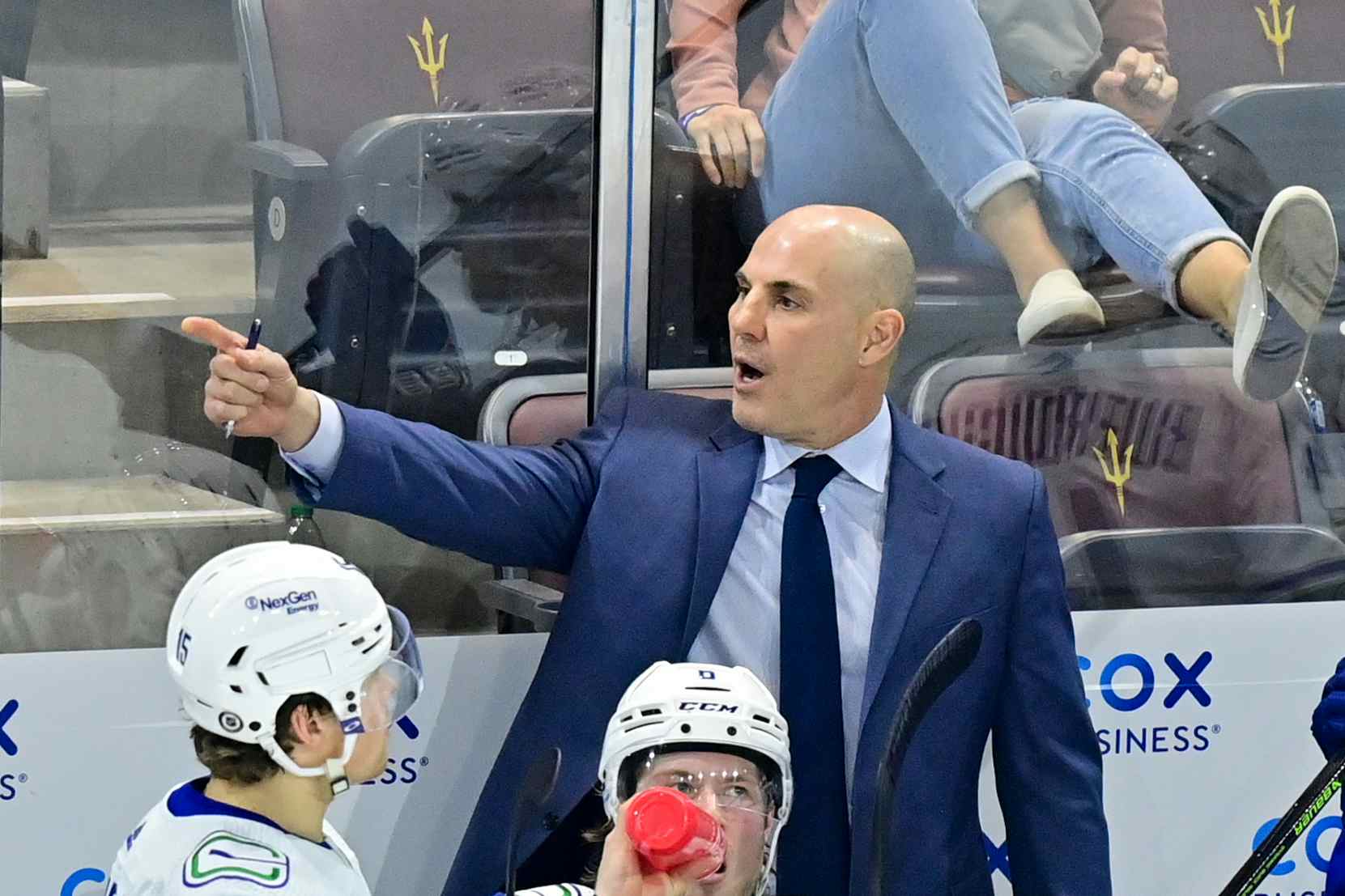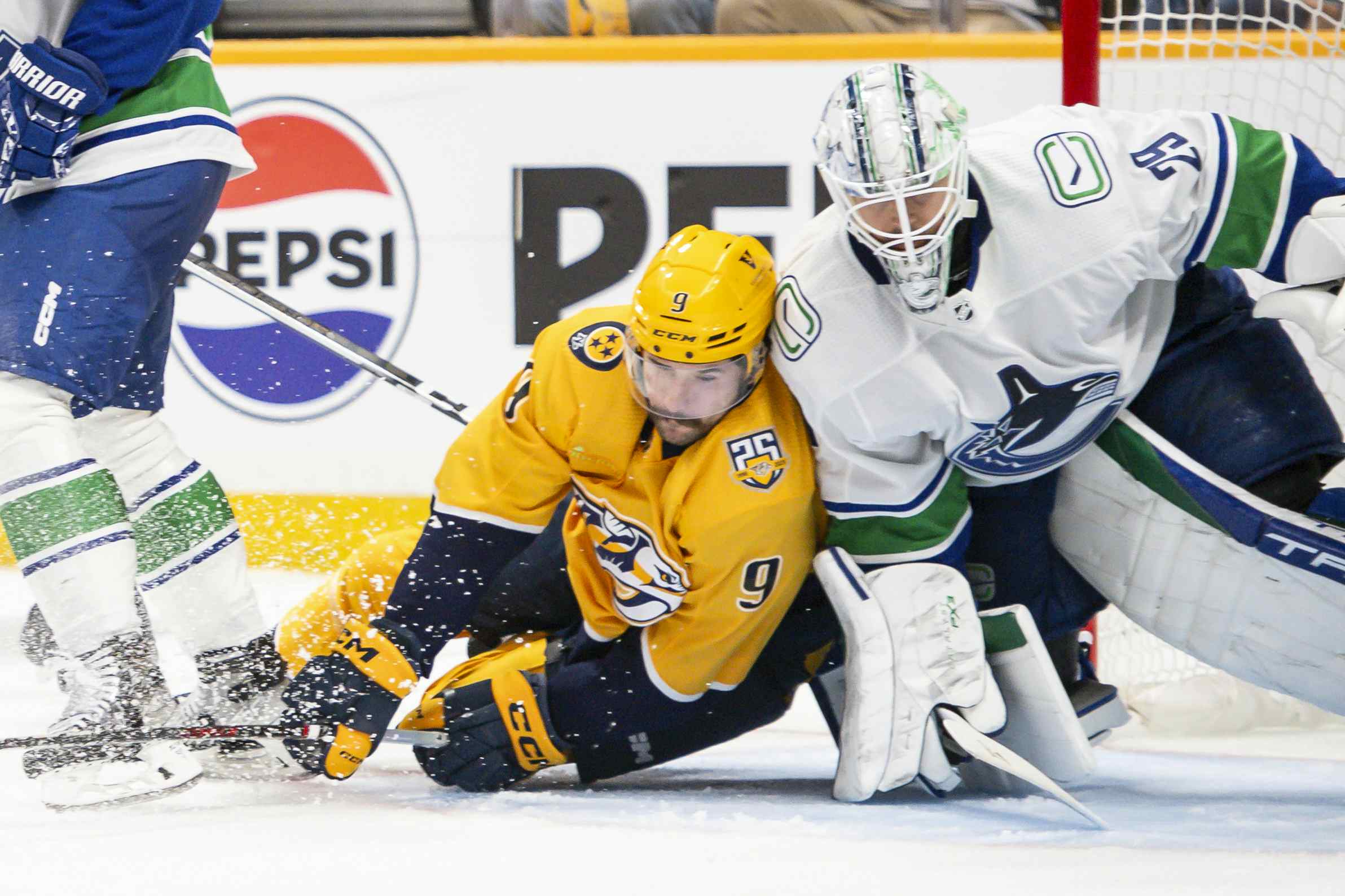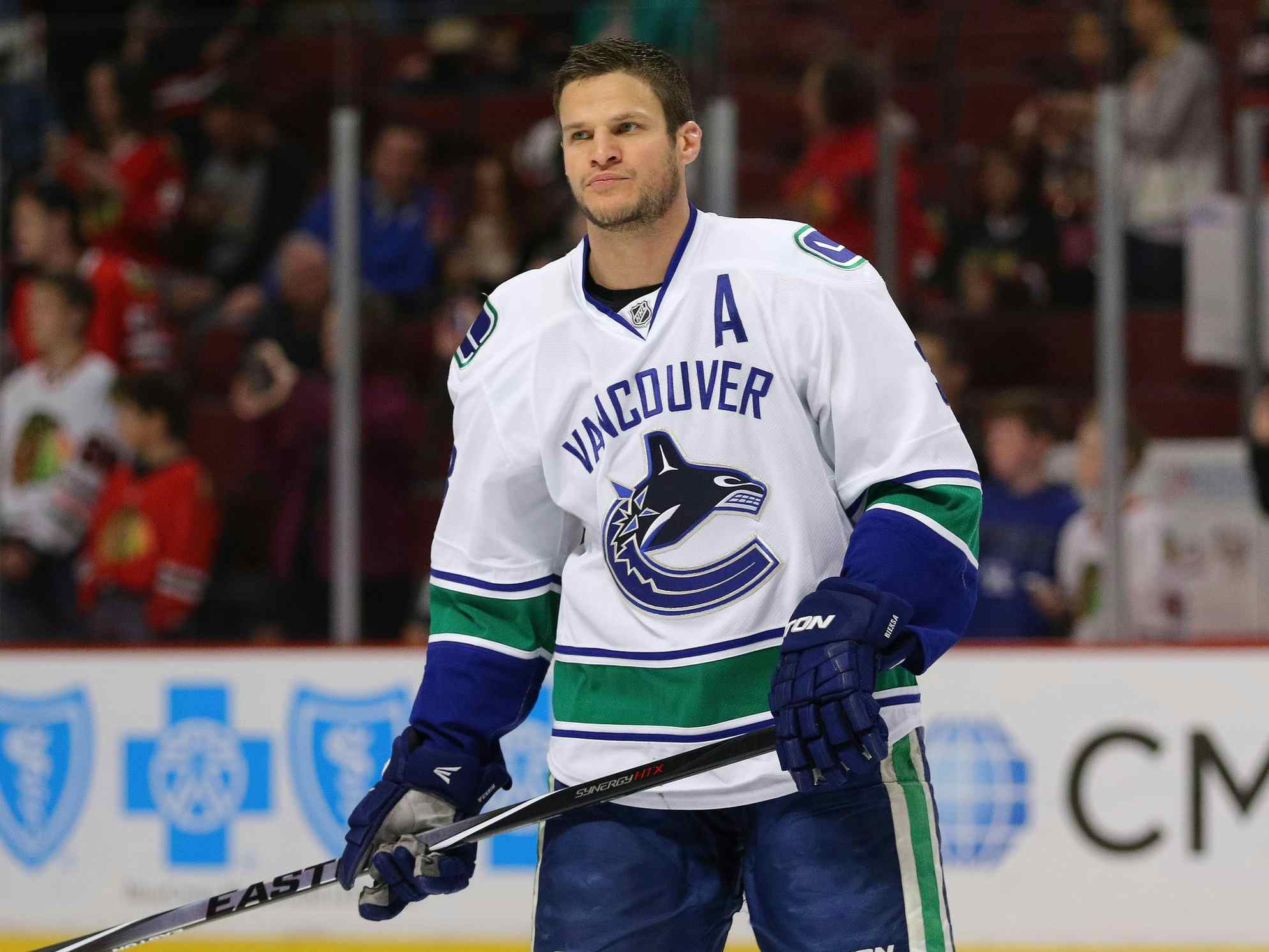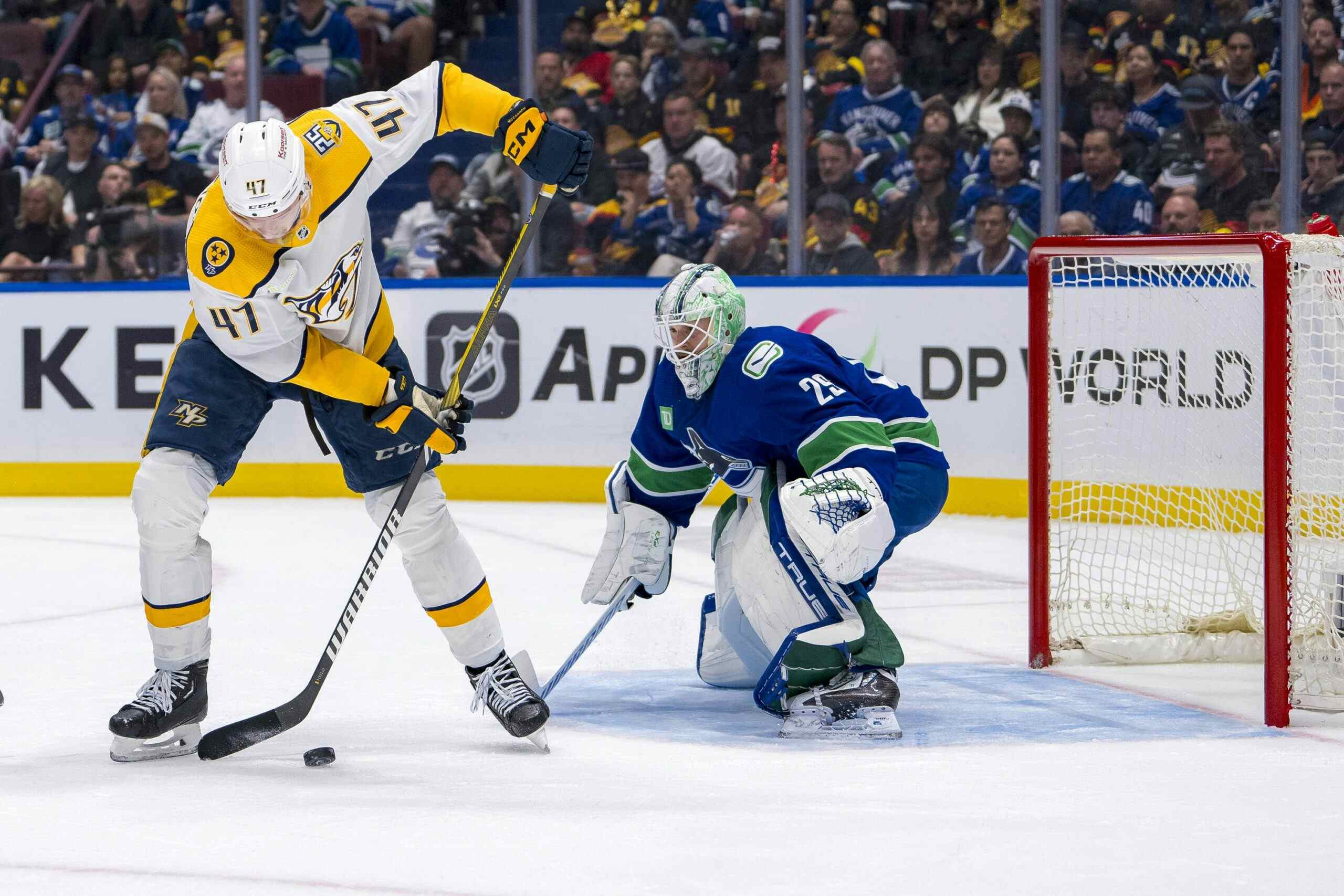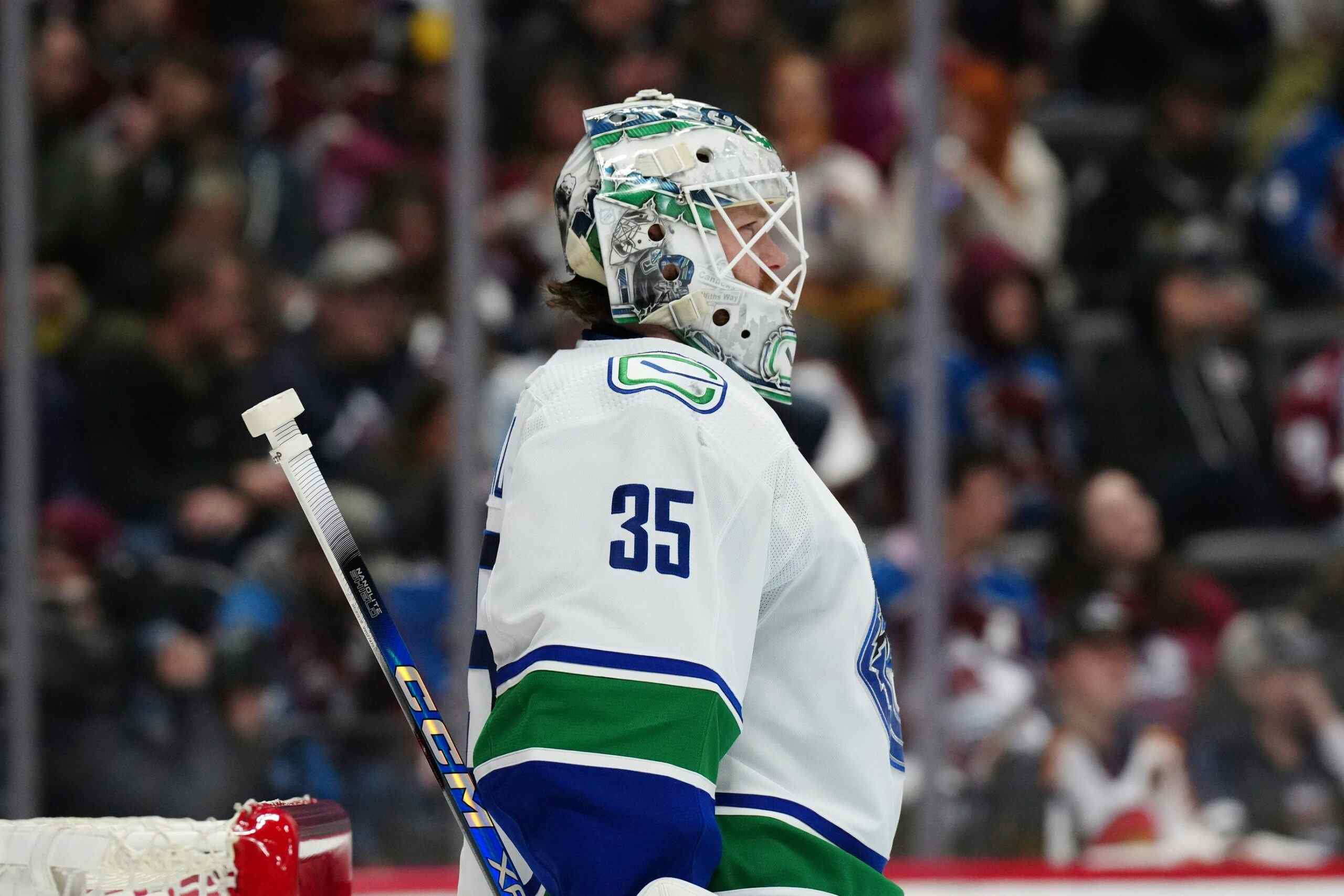1% Stronger: An Interview with Utica Comets Mental Skills Coach Ashwin Patel
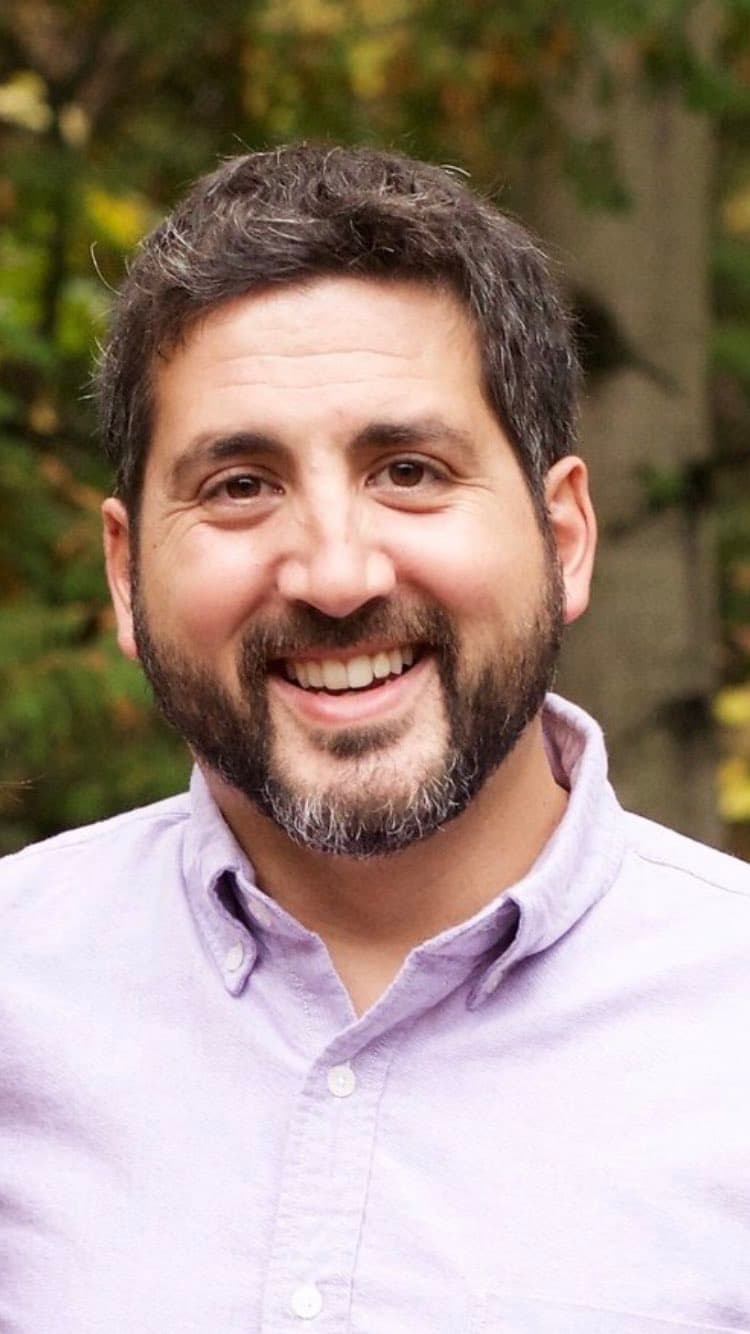
By Cory Hergott
4 years agoUtica Comets Mental Skills Coach
Ashwin Patel

There can be a perception in this market that the current management group of the Vancouver Canucks isn’t forward-thinking enough or that the team’s prospects are not being afforded the opportunities or resources that prospects get in other organizations, but that hasn’t been my experience when discussing these matters with the players themselves. Generally, the players I’ve spoken to feel the team does an excellent job of giving them everything that they need to succeed as good professionals on and off the ice. The team isn’t just trying to groom hockey robots, but quality professionals as well.
One of the areas where the Canucks/Comets are stepping out ahead of some of their NHL/AHL brethren is in the area of mental health/mental skills. The team hired a new Mental Skills Coach in the offseason, so I thought that I would check in with Ashwin Patel to see what makes him tick and get a feel for what his duties with the team entailed.
Normally, when I get the opportunity to speak with a player or coach from the Comets, I get roughly 8-12 minutes or so with them and that is plenty of time to build an article around and I am always extremely grateful to get that time. Ashwin, for his part, gave me a fascinating 40-plus-minutes of his time that I will be sharing here with you.
The first question that I had for Ashwin was what drew him to his field… why did he want to get into this line of work?
I always love when people in my industry say this, but when I was an athlete… I was a low-level athlete, tennis was the main sport that I played growing up, but I was always hyper-critical of myself and felt that I needed to be perfect. I had to play extremely well and if I didn’t, or if something got altered, it would throw me off.I had a very difficult time when I was young, to be able to process or get myself back to where I needed to be able to function on the court, let alone other sports that I was able to play. Obviously not remotely at the level of the Canucks/Comets players, but it was challenging.I was always trying to better understand what is the mindset of individuals that performed well, and I had the experience of seeing some individuals growing up in Southern Ontario that were the million-dollar bodies and the 10-cent mind that had every physical tool but were unable to put it together. Conversely, there were others who, when you looked at them, you weren’t impressed by their physical nature, but they were gritty and they were extremely difficult to compete against.So I was fascinated by that. It was one of the things that drew me to the field.I did a psych undergrad at the University of Guelph and I loved my experience there and I really enjoyed just kind of listening to friend’s of mine who had challenges or issues or just questions and I just loved hearing people… not at a counselling level, particularly not as an undergrad, but to learn from them and to see if there were any ways that I could assist. That led to me wanting to pursue a Masters and a PhD in that, which I ended up being able to do at the University of Tennessee.
I wanted to dig a little deeper into how Ashwin came to be employed by the Comets. The hockey world is a small one, and I always find it interesting to find out why a free agent chooses to sign with a specific team, and I figured there might be an interesting story behind Ash’s hiring as well.
It’s kind of a funny story. So last May I was in Halifax with the Guelph Storm, that’s the OHL team that I’ve been working with for… this is my fourth year with them… prior to our last round-robin games, we had a dinner set with the coaches, some of the scouts and our ownership group.One of our three owners is Scott Walker, who at the time was working with the Canucks organization, and he grabbed me a dinner and said he wanted me to meet with Ryan Johnson. At the time, Ryan was meeting with a couple of the players within the organization in Toronto.So I went home on a Thursday, Scott provided the introduction and I met RJ for an hour or so and just loved… like… LOVED listening to him, hearing his thoughts and visions and what he felt was important… what was an area that Vancouver could explore… and Vancouver has always had someone from a mental skills standpoint work with the organization, but I think he felt this was something that they wanted to explore within the Comets organization.We had a dialogue throughout the summer and in September, the paperwork was finalized. Two days later, I was driving to Utica to begin working with the team.Right before that actually began, I had a conversation with Trent, (Cull) in late July/early August and he was all in. He had previously worked with Ryan Hamilton with Syracuse, he’s a world-renowned professional who has worked with Team Canada as well as Tampa and Syracuse. So he has a familiarity with working with a mental skills coach… so he was on board.That always makes it so much better when you have someone who embraces that side of it. So having both RJ and Trent, and then Gary, (Agnew, associate coach) and Jason, (King, assistant coach) be on-board has been phenomenal.
It occurred to me that it was possible that other AHL teams didn’t employ someone in Ashwin’s position, so I asked if he knew if there were other teams at the Comets level who were taking a similar approach with their prospects.
I’m actually trying to get research on this right now. I know that almost all of the Canadian teams do. Ottawa does, Toronto does, Calgary and Edmonton, New Jersey does, Tampa Bay does, but, you know what… I don’t have a list of individuals. Buffalo does, they’re in a transition. I believe the person who was there is leaving but they are bringing in someone else in her absence… so Rochester/Buffalo, I’m saying maybe half?For the most part, the colleagues of mine that are working… I don’t want to speak for them, but a handful of them just work with the NHL team. I’m actually trying to do a research paper on that to see how much time and energy is being spent at the AHL level. There’s a handful of teams.We’re really fortunate with Vancouver that there’s a phenomenal guy that works with the Canucks organization named Alex Hodgkins who is brilliant at what he does and he’s been working with the Canadian Women’s National Soccer Team for years, so they have a phenomenal resource in him. It’s been great to collaborate with and learn from him as well.
So, what does a mental skills coach do? How do the Comets utilize Ashwin and what are his responsibilities with the club?
I’m really a resource. My job is to serve the coaching staff, the players, the trainers… so that’s my number one goal, to be a resource for them. Sometimes it’s via articles or podcasts, or videos that I’ve come across.I’m in the process of creating a Dropbox folder so that the players can have access to themes or topics. So if they’re wanting to better understand confidence, or they want to learn a little more about mindfulness, I can create a Dropbox folder for them and they can kind of explore that information on their own.I usually go to Utica two times a month, or if they’re playing in Toronto, Belleville, Rochester, Syracuse, the closer areas, I’ll also go check out some of those games. It’s usually about twice a month that I go visit for about 2-4 days at a time. I communicate with the players throughout the season and RJ has done a really nice job of getting their birthdays, significant others’ names and birthdays, so I’ll try to connect with them as much as I possibly can… How are things going, or happy birthday or I hear your son is two-years-old. You know, little things like that along those lines to kind of build up a rapport.When I’m on-site, one of the first things that I do is check in with the coaching staff. Trent has been very welcoming and allows me to sit in on a meeting when they have their Monday morning meetings. That gives me a gauge of the temperature of the team… so how they’re doing, who may need rest.It’s great, that process, the video coach, the athletic therapist, the trainers are all there. If the goalie coach or skills coach or skating coach is in town, it’s just a nice way for everybody to do a check-in. Based on that, then Trent might say, hey, just do your thing, we’ll have a presentation tomorrow. Or he might say, hey, I have an idea, can you come up with a presentation on a topic… it might be about opportunity or being present-minded. Those are a couple of the things that he’ll ask me to work on.The rest of those times, I’m just sort of going in and out… go to the locker room, weight room, training room, video room and just kind of be. Just kind of check-in and make it as informal as possible. The one thing that I’ve learned just from being a professor over the last 15 years is students don’t really… the buy-in is extremely important and if the students don’t feel that you care about them as a person, it’s difficult for them to buy-in/difficult for them to open up and engage in the material. I find that it’s similar when working with athletes, you have to build their trust.One of the things that Trent was amazing at was when I was first introduced to the team, he said, hey listen if Ash is coming to see me, it’s to help me to coach better, to communicate better. He is not and he will not share any of the information from any conversations that he has with you.So I think that was really helpful from a buy-in standpoint because if there had been a stigma or a thought or a perception that conversations that I’ve had with players were going to get back to management or the coaching staff, they wouldn’t want to share or divulge information. So we wanted to make sure that it was clear right off the bat that this is something that is going to stay in-house.That’s all I have. If I don’t have the trust, if I break my promise or if I break my word with the players, I’m done, and rightfully so. That’s something that I will not do. If a player is struggling with confidence, I don’t run back and say, hey, this person is struggling with confidence, because you will lose any respect and trust that you have in the locker room by doing that.Another nice thing is that the Canucks organization provides breakfast and lunch every day for the team, so I will kind of join them for lunches and if any players feel more comfortable talking off-campus, Mr. Benning has given approval for RJ to allow me to take guys out for coffees or dinners.Sometimes, I’ve found that to be a really nice way to get to know the players off-site so that there’s a little bit more of a level of comfort. That’s something that I learned from a professor from years ago who was working with the Utah Jazz. He said that’s one of the really important ways that he was able to earn the trust of the players… to take them out for coffees or dinners off-site.So that’s something that I’ve embraced and thankfully been approved to be able to do. I don’t abuse it and go to fancy restaurants, but it’s nice to be able to have those conversations with guys outside of the arena. When I’m home, I’ll text or call based on the interest of the player involved.Some people are extremely open, again, just to clarify, I’m not a psychologist. My doctorate is in sports psychology but it is a legally protected term. So as I tell them, I have a doctorate in it, but I am a mental skills coach or mental skills performance coach, not a counselling psychologist. Once they understand that, it’s great and I just try to normalize the conversation.Some guys are great and just say, I’m struggling with this and they’re happy to have that conversation in front of other people. But some other people want to have those conversations one-on-one and not have to worry about someone else overhearing and that’s okay as well. We’re just trying to normalize the experience.To get 1% better. You know it’s a cliche term but I think it’s the mindset of you know… the 76ers… Trust The Process, that’s it. Just focus on what we need to do on a daily basis to get a little bit better than we were before.So the mental side is just something that we are trying to encourage our players to embrace. Can we get 1% stronger mentally? It takes a bit of the stigma off of trying to become great all of a sudden… all at once. It takes time, just like lifting weights.
I was particularly moved by this analogy. Training the mind takes time, just like training the body.
It feels like the Canucks prospects are in good hands in Utica and it also feels like the team has been evolving and will continue to evolve in terms of finding new ways to make the improvements needed to have a successful system that is capable of developing prospects and helping them become NHL regulars.
My conversation with Ashwin lasted a little over forty minutes and we are about halfway through at this point, so I think we will break this up into two articles for ease of reading purposes. I thoroughly enjoyed speaking with Ash and look forward to finishing up the second half of this piece, which you can expect to see in the coming days.
Recent articles from Cory Hergott
- Comets Weekly: Jack Rathbone scores first AHL goal while defence partner Jett Woo leads the team in plus-minus
- ‘This has been a perfect opportunity for me’: A one-on-one with Canucks prospect Jett Woo after his first month of pro hockey
- Comets Weekly: Utica goes 2-0, Rathbone lights it up, Gadjovich, Lind, Jasek, and Woo keep improving

